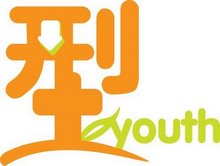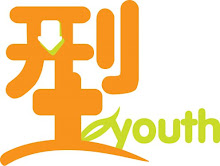1 Kings 17
7 Sometime later the brook dried up because there had been no rain in the land. 8 Then the word of the LORD came to him: 9 "Go at once to Zarephath of Sidon and stay there. I have commanded a widow in that place to supply you with food." 10 So he went to Zarephath. When he came to the town gate, a widow was there gathering sticks. He called to her and asked, "Would you bring me a little water in a jar so I may have a drink?" 11 As she was going to get it, he called, "And bring me, please, a piece of bread."
12 "As surely as the LORD your God lives," she replied, "I don't have any bread—only a handful of flour in a jar and a little oil in a jug. I am gathering a few sticks to take home and make a meal for myself and my son, that we may eat it—and die."
13 Elijah said to her, "Don't be afraid. Go home and do as you have said. But first make a small cake of bread for me from what you have and bring it to me, and then make something for yourself and your son. 14 For this is what the LORD, the God of Israel, says: 'The jar of flour will not be used up and the jug of oil will not run dry until the day the LORD gives rain on the land.' "
15 She went away and did as Elijah had told her. So there was food every day for Elijah and for the woman and her family. 16 For the jar of flour was not used up and the jug of oil did not run dry, in keeping with the word of the LORD spoken by Elijah.
17 Sometime later the son of the woman who owned the house became ill. He grew worse and worse, and finally stopped breathing. 18 She said to Elijah, "What do you have against me, man of God? Did you come to remind me of my sin and kill my son?"
19 "Give me your son," Elijah replied. He took him from her arms, carried him to the upper room where he was staying, and laid him on his bed. 20 Then he cried out to the LORD, "O LORD my God, have you brought tragedy also upon this widow I am staying with, by causing her son to die?" 21 Then he stretched himself out on the boy three times and cried to the LORD, "O LORD my God, let this boy's life return to him!"
22 The LORD heard Elijah's cry, and the boy's life returned to him, and he lived. 23 Elijah picked up the child and carried him down from the room into the house. He gave him to his mother and said, "Look, your son is alive!"
24 Then the woman said to Elijah, "Now I know that you are a man of God and that the word of the LORD from your mouth is the truth."
When we facing difficult time:
Verse 10 – 14
The widow:
She only sees her circumstances.
Elijah:
He trusts the word of Lord.
Elaboration:
· We always determine the possibility depending on the things that we can see or we had.
· We assume that the problem/circumstance is big that the God also cannot do anything about it.
· Like a joke saying that a boy was crying a day before his exam. His mother asked him why he crying, he say he is afraid he will failed his mandarin exam. So the boy’s mother told him to pray, but the boy say, “I don’t think Jesus know Chinese, mom. He is a Jews.”
· When things are out of our hand, we think that God cannot handle/solve the problems so they still exist.
· So we like the widow, we try to keep everything we have for ourselves.
· We don’t give offering because we want to save money; we don’t want to serve because we need more time to do our work.
· But God doesn’t want us to be anxious of our circumstances. Jesus told His disciples not to be anxious for their lives. (Matthew 6:25) But seek first the Kingdom of God and His righteousness, and all other things will be add on to you. (Matthew 6:33)
· We don’ just read the Word but we sow our faith in it.
· Many prophets in ancient time always quote “in the Lord’s name” or “I swear in the Lord’s name”, why? This is because they trust the word of God so much that God Himself will be the guarantor to His own word.
· Elijah never been to the widow’s house before, he didn’t know whether the widow had any food for him. But since the Lord say through the widow, Elijah can get food, so he just walked there and ask for food.
· Note that Elijah didn’t ask, “Do you have any food for me?” He just told the widow, “And bring me, please, a piece of bread.”
· This is because Elijah knew that it wasn’t matter whether the widow had the bread or not, if the widow didn’t have it, God will provide. God promised that.
· So, do we see and understand God’s promise, or we only see our problem and circumstances?
Verse 17 – 21
The widow:
She blamed others when disaster comes.
Elijah:
He seeks God.
Elaboration:
· When facing problems or difficult times, most people like to blame others.
· It’s a self defence mechanism in us in which we can cast these bad feeling to others, so that we feel better.
· Bad times come, we blame our parent, then siblings, then spouse (girlfriend/boyfriend), then church, then pastors, then the last but not least, we blame God.
· This attitude when dealing with difficulties can be seen in Israelites throughout the 40 years in the wilderness.
· They blame Moses bring them out from Egypt to death, even though by the time they were complaining and blaming, the Israelites still receiving the providence (food) from God!
· Imagine this, one day you come to my house, I give you a place to sleep, provide you food and drinks, not asking you to payback anything. Suddenly you accidently kick on the table and you start blaming me for putting the table there or try to hurt you with the table… This is not a good attitude, is it?
· The widow is the same. She witnessed God’s province to her and her family through miracle, yet she blame Elijah for brought death to her son. She asked Elijah whether he come to bring judgement.
· But what did Elijah do? He spoke nothing but carry the child up to room and pray to God.
· How many of us really and truly carry the problem to God and pray?
· Trust in the LORD with all your heart and lean not on your own understanding. (Proverbs 3:5)
· Before you start to say, “This must be……” Seek God first, do not jump into conclusion.
· Remember there is always lesson of faith for you to learn when God put you into a difficult situation.
Verse 22 – 24
The Widow:
She only believes when she sees things happen.
Elijah:
He put his faith on the Lord and thrust Him will all heart even the prayer yet to be answer.
Elaboration:
· Now faith is being sure of what we hope for and certain of what we do not see. (Hebrews 11:1)
· Many of us, even believer of Christ, do not have faith in the word of God.
· Sometime pastor told us if we offer to God, God will reward us. But we usually calculate the “profit and loss” then we decided whether it is worth to give.
· Many sick or people who are in need that get healed or deliverance from Jesus, believe Jesus can heal them even before they were heal.
· These people like the nobleman in Galilee (John 4:47), Centurion in Capernaum (Luke 7), a woman having an issue of blood twelve years (Luke 8), they all believed in the power of Jesus before their requests were answered.
· The widow need to witness two miracles before she believed the word of God is true.
· Sometime we witness and receive the goodness of God for life, still we doubt.
· There is no case of prophet raising dead before Elijah, not knowing how, but he knew God can do it.
· That’s why he never complained, grumbled, or felt hopeless when the boy died. He can brought the boy to the Lord because he have faith that God will turn this around.
· God can turn things around, but He requires us to have faith in Him.
· Then Jesus told him (Thomas the disciple), "Because you have seen me, you have believed; blessed are those who have not seen and yet have believed." (John 20:29)
Conclusion:
The attitudes when facing difficult circumstances:
1. Trust the Word of God
2. Seek the wisdom of God
3. Have faith even prayer not yet answer







No comments:
Post a Comment